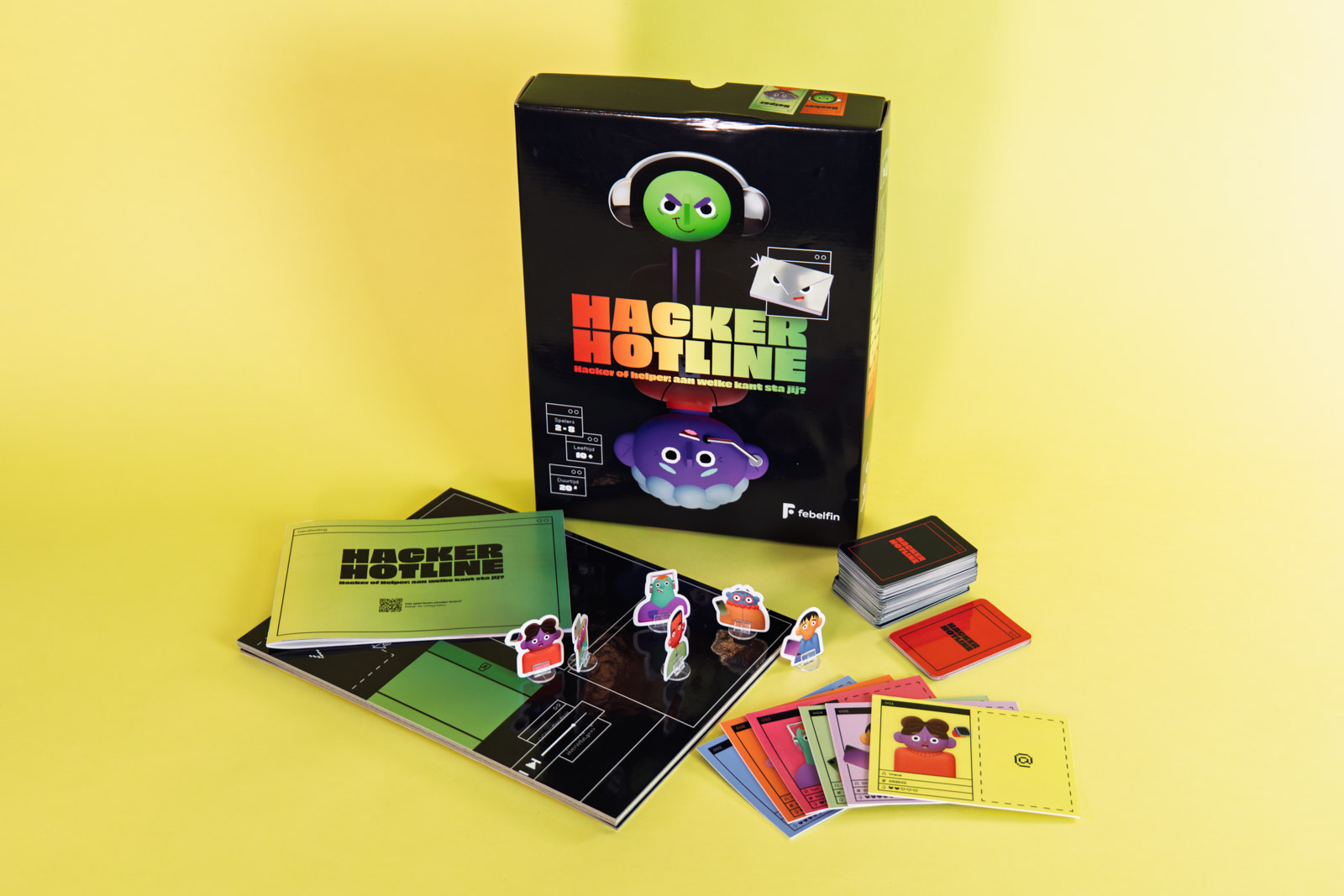Hacker Hotline 2.0: Board game makes youngsters cyber resilient
7 October 2025 - 5 min Reading time
Febelfin launches new board game to guard young people against online fraud
After two successful years on tour across Belgium with the mobile escape game The Hacker Hotline, Febelfin is now launching a brand new initiative: Hacker Hotline 2.0, an interactive board game that makes young people aware of the dangers of online fraud in a playful way.
From escape game to classroom
With The Hacker Hotline, a mobile escape room, Febelfin reached no fewer than 1,966 participants in 95 different organisations or companies, spread across 71 towns and municipalities throughout Belgium between 2023 and 2025. The escape game was played by both young and old, with the oldest participant being an enthusiastic 90-year-old.
‘One participant even went so far as to completely reset the game to factory settings!’
In total, the Hacker Hotline team travelled 19,000 kilometres to raise awareness about phishing, money mules and other forms of digital fraud.
The feedback was unanimously positive: from young people who felt helped to teachers and counsellors who considered the game a valuable tool.
Hacker Hotline 2.0: a board game with impact
Febelfin continues to build on this success with a free board game that playfully raises awareness among young people about the dangers of online fraud and that teachers can request for use in the classroom. The game is aimed at young people aged 12 and above and teaches them:
- which forms of online fraud exist;
- how to recognise suspicious situations;
- how to protect themselves through good cyber hygiene.

The board game is supported by practical teaching materials on online fraud (only in Dutch/French) and money mules (only in Dutch/French), so that teachers can get started right away. The workshops are available in a PowerPoint format with speaking notes and are fully aligned with the learning objectives of the attainment targets, so that they can be taught independently by teachers.
Why this remains necessary
After the Hacker Hotline tour, we can conclude that it is crucial to continue to inform people and young people about current forms of fraud, such as messages via social media, fake emails, fake messages from Card Stop or even misuse of tools such as itsme. After all, we see that young people are susceptible to online fraud. This is also confirmed by research conducted by Febelfin:
Febelfin survey conducted by Indiville, February 2025.
- 23% of young people do not know what phishing is.
- Among young people, 23% would possibly share their bank codes if asked to do so by e-mail, text message or other digital means – after carefully reviewing the message and the accompanying website.
- However, 5% of young people would share their codes without hesitation.
- 13% of young people would simply send their bank card if “their bank” asked them to.
- One in three young people see additional security measures for online purchases as an obstacle.
- 45% of young people have never heard of the phenomenon of “money mules”.
Febelfin continues to promote financial education and digital and financial inclusion, and this board game is a new step in that direction.
Request the Hacker Hotline board game? Here's how!
Teachers and organisations can easily request the Hacker Hotline board game via info@febelfin.be. There are two options:
- Pick it up at the Febelfin offices
- Have it sent to you – shipping costs are at the expense of the requester
In addition, the game will also be distributed free of charge at various teacher fairs.